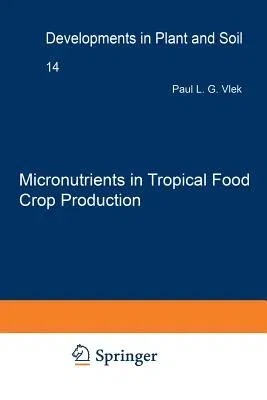The mission of the International Fertilizer Development Center is to
increase food production through the improvement of fertilizers and
fertilizer practices for the developing countries with special emphasis
on tropical and subtropical agriculture. The principal aim is to ensure
that fertilizer technology is not a limiting factor to food production
in those regions. Although the full extent to which deficiency of
micronutrients hampers food production is yet un- known, there is ample
evidence that problem areas exist and more will be identified as crop
production is intensified and marginal lands are exploited. Therefore,
it seems fully appropriate at this time that IFDC, as an international
organization, take a leadership role in developing micronutrient
fertilizer technology appropriate for the tropics and subtropics. The
gravity of micronutrient deficiency as a limiting factor to crop pro-
duction varies from crop to crop and from soil to soil. The effects may
range from slight yield reductions to complete crop failure. While the
economic impact of omitting micronutrients in seriously affected areas
(e.g., Zn in Brazilian Cerrado) is convincing, it is difficult to
estimate the yearly loss in crop production due to unsuspected
micronutrient deficiency. Active soil and crop testing programs in
regions with advanced agricultural systems are aimed at recognizing
micronutrients as a limiting plant nutrient in time to allow corrective
measures and prevent yield loss. Successful micronutrient monitoring
systems are generally limited to developed economies or to developing
economies producing export cash crops.


